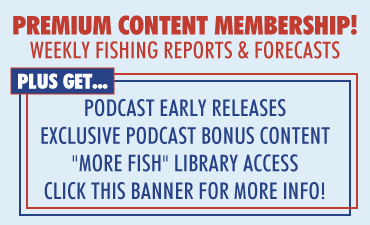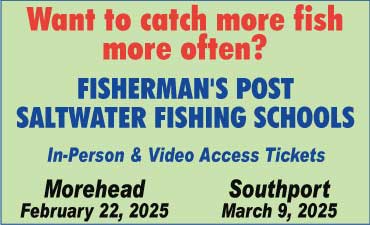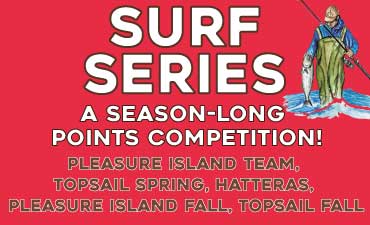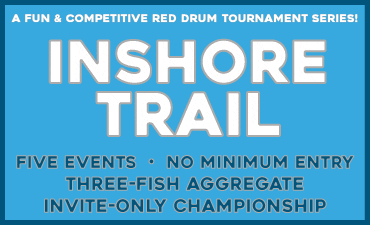Releases – July 22, 2010
Starling Marine’s 1st annual Summer Celebration will be held on Saturday, July 31, and proceeds from this year’s event will benefit Elizabeth Edwards.
Elizabeth is a 35-year-old local Wilmington woman who was diagnosed with Multiple Myeloma in the fall of 2009. Multiple myeloma is a cancer of the blood and bones. The disease is incurable, but treatable with chemotherapy, radiation, and stem cell transplants.
She has had multiple surgeries, several rounds of radiation, and multiple rounds of chemotherapy to this point. She is scheduled for a stem cell transplant in the summer of 2010. Her medical bills are enormous from UNC-Chapel Hill, NHRMC, and Duke University Hospital.
The tournament will feature both kid and adult categories, and both age categories will be awarding prizes for a number of species. The list includes blackfish, bluefish, croaker, flounder, king mackerel, pig fish, pin fish, spanish mackerel, spot, Virginia mullet, red drum, billfish, cobia, dolphin, grouper, king mackerel, spanish mackerel, tuna, and wahoo.
Registration is a $100 donation per boat, and this includes dinner (catered by MOI) for up to four adults (children 10 and under are free), two t-shirts, and a captains’ bag.
The dinner will also feature an extensive silent auction.
For more information (or to register), you can call Starling Marine at (910) 256-3661, go to their website at www.starlingmarine.com, or stop by their dealership at 2035 Eastwood Road in Wilmington.
The South Atlantic Fishery Management Council is soliciting applications for seats currently available on its advisory panels. Working at the grass roots level, advisory panel members provide information and guidance in the development and implementation of federal fishery management plans.
The Council has 15 separate advisory panels composed of individuals who are engaged in the harvest of, or are knowledgeable and interested in the conservation and management of the fishery or group of fishes to be managed. Members include recreational and commercial fishermen, seafood dealers and processors, conservationists, scientists, and concerned citizens.
Advisory panel members are appointed by the Council and serve for a three-year period, based on the frequency of meetings. As those appointments expire, members currently serving on the AP can reapply for their positions. These seats also become open to new applicants. AP members generally meet no more than once or twice each year and are compensated for travel and per diem expenses for all meetings.
Applications are now being solicited for the following positions:
Coral Advisory Panel — (3) Scientist Seats, (1) Recreational (non-Coral Harvester) Seat, and (1) Commercial fisherman (non-Coral Harvester) Seat
Habitat Advisory Panel — (1) Georgia NGO/Environmental Seat
Information & Education Advisory Panel — (1) Open Seat
Mackerel Advisory Panel — (1) Georgia Recreational Seat
Law Enforcement Advisory Panel — (2) Open Seats
Snapper Grouper Advisory Panel — (1) North Carolina Commercial Seat, (1) South Carolina Commercial Seat, (1) Florida Commercial Seat, and (1) Georgia Charter/Headboat Seat
If you are interested in serving as a member on the Council’s advisory panels, please submit an application to the South Atlantic Fishery Management Council, 4055 Faber Place Drive, Suite 201, North Charleston, SC 29405. Applications can be obtained by contacting the Council office at (843) 571-4366 or toll free (866) SAFMC-10. Application forms are also available online at www.safmc.net.
Applicants are strongly encouraged to contact area Council representatives to discuss their interest in serving. Contact information for all Council members is available at www.safmc.net or through the Council office.
Advisory panel members will be selected during the next meeting of the South Atlantic Fishery Management Council, scheduled for September 13-17, 2010 in Charleston, South Carolina. Applications must be received by August 20, 2010.
The 1st Annual Cape Fear Flounder Classic will be held at the Southport Marina on Saturday, July 31. This event is being organized as a fundraiser for the Southport-Oak Island Area Chamber of Commerce.
Following the prize structure of the Chamber’s very popular U.S. Open King Mackerel Tournament, the all cash guaranteed prizes total $5,300.
The entry fee for the Cape Fear Flounder Classic is $100 per boat with an optional $50 TWT. Tournament participation will be limited to boats, and all fish must be taken on a rod and reel. There are no check-out and no boundaries (with the exception of restricted areas such as Sunny Point and Progress Energy intake wall).
Registration for the Cape Fear Flounder Classic will be held at the Chamber Office at 4841 Long Beach Road on Monday thru Friday from 10:00am-4:00pm beginning Friday, July 9, thru Friday, July 30. There will be additional registration on Friday, July 30, from 5:00pm-7:00pm at the Southport Marina.
A Hot Dog Dinner for the participants will be held at 6:00pm on Friday, July 30, and Saturday, July 31.
Fishing hours will be on Saturday, July 31, from 7:00am until 4:00pm with the scales open from 3:00pm-5:00pm. The awards ceremony will be held on Saturday, July 31, at 6:00pm.
For more information, contact Southport-Oak Island Area Chamber of Commerce at (910) 457-6964 or email them at events@southport-oakisland.com.
The South Atlantic region is home to what may be the largest continuous distribution of deepwater corals in the world. New management measures proposed by the South Atlantic Fishery Management Council to help protect these sensitive habitats recently received approval from NOAA Fisheries Service and the Secretary of Commerce and become effective July 22, 2010.
Five areas, located off the southeastern coast of the U.S. and encompassing more than 23,000 square miles (about the size of the State of West Virginia) will be designated Coral Habitat Areas of Particular Concern (Coral HAPCs). The designation affords added protection to the areas that house an invaluable array of fish and invertebrate species, some of which may have biomedical applications in the treatment of human diseases.
Established through the Council’s Comprehensive Ecosystem-Based Amendment 1, management regulations in the Coral HAPCs enhance protection of the sensitive habitats from impacts associated with bottom fishing practices. The use of bottom damaging gear such as longlines, trawls, dredges, and pots plus the use of grapples, chains, and anchors are prohibited within the designated areas. Working closely with fishermen that specialize in deepwater fisheries, the Council crafted the amendment to restrict fisheries that occur within the same depth zone to areas where they have traditionally operated.
New measures will help protect deepwater coral habitats off the South Atlantic coast in cold water areas ranging in depths from 400 meters (1200 ft.) to 700 meters (2300 ft.).
“The approval of the South Atlantic Fishery Management Council’s Comprehensive Ecosystem-Based Amendment 1 and the protection of the most significant coral habitat in the South Atlantic is perhaps the most rewarding accomplishment of my Council career,” stated Council Chairman Duane Harris. “This accomplishment is only possible because of extremely hard work of our Habitat and Coral Advisory Panels and the excellent cooperative spirit of the fishing community, especially the deepwater shrimp and golden crab fishers.”
“The historic, final approval of the Southeast deepwater Coral HAPCs is great news for the scientists, managers, and fishermen who worked together so long and hard to make this a reality, and for all Americans who love the ocean,” said Dr. Douglas Rader, past chairman of the Council’s Habitat and Environmental Protection Advisory Panel and Chief Ocean Scientist for Environmental Defense Fund. “The timing—while we are all reeling from the still-ongoing oil disaster in the Gulf—is especially important, as a breath of fresh air, and as a down-payment in protecting the most special places in the sea.”
For additional information on deepwater corals, including photos and area maps of the Coral HAPCs, visit www.safmc.net.





